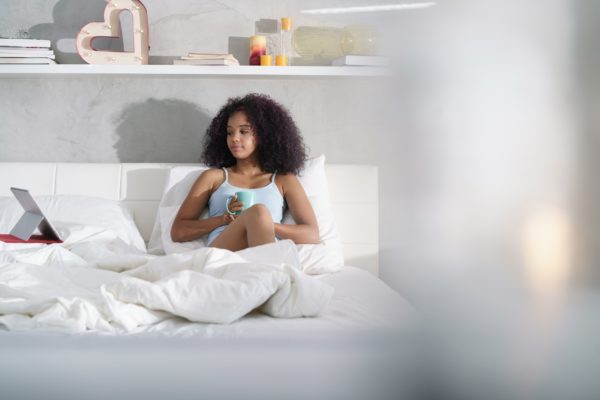16 All-Natural Sleep Aids That Will Have You Snoozing in No Time
Start sleeping like a baby with these secrets to better shut-eye.
Tossing and turning all night never feels good—and most Americans are all too familiar with it. An estimated 164 million people struggle with sleep at least once a week, according to a 2016 survey from Consumer Reports. Insomnia can do worse than just tire you out the next day. If you’re suffering from chronic lack of sleep, it can take a toll on your overall health.
Ongoing sleep deficiency can lower your immune system, making it harder for your body to fight infections. It can trigger mood changes like irritability, depression, and anxiety. And studies have linked insufficient sleep to weight gain; increased risk of developing heart disease, high blood pressure, and type 2 diabetes; and even shorter life expectancy.
In the same vein, good sleep habits promote everything from memory (your brain needs rest to form new neural pathways to learn and retain information) to good mental health (you’re better able to regulate emotions, solve problems, and make decisions when you’re rested) to hormone regulation and healing.
While some may turn to prescription sleeping pills to catch some zzzs, others are wary of side effects, which include dizziness, headaches, and allergic reactions, as well as a possible increased risk of dementia. That’s why we asked sleep experts to share their go-to insomnia hacks to find out the best ways to nod off at night.
But remember: It’s important to talk with your doctors about consistent sleep problems. You should also let them know if you’re taking any type of sleep aid, natural or otherwise, to ensure there isn’t a potential risk with existing health conditions or other medications you’re taking, says clinical sleep educator Terry Cralle, RN. “Like all drugs, natural sleep remedies can have side effects and risks. I think it’s good to get information about them and then discuss it with a healthcare provider.”
Put away technology
“This is number one—most of us have this reflex where our cellphone has to be within arm’s length, even when we go to bed,” says Raj Dasgupta, MD, sleep expert and assistant professor of clinical medicine at Keck School of Medicine of University of Southern California. “We need to break that habit.” Studies have shown that the blue light generated by electronic devices can delay the onset of sleep. (Here’s how spending just one extra minute on your phone before bed can rob you of 60 minutes of sleep.) Turn your phone on silent and keep it on a dresser or far end of the bedside table so you’re not tempted to text, check one last email, or get lost in social media.
Get out of bed
Abide by Dr. Dasgupta’s 20-minute rule: If you can’t fall asleep within 20 minutes, leave your bed and do something non-stimulating in another room. “Read a real book—not an e-book—and avoid anything that may cause you stress or aggravation, which further prevents sleep,” he says. Once you feel drowsy, crawl back into bed.
Try bedtime yoga
Yoga relaxes your body and mind, making it perfectly primed for sleep. Rachel Salas, MD, associate professor of neurology at Johns Hopkins School of Medicine, suggests simple poses that allow you to focus on your breathing and releasing the tension of the day. Try sitting cross-legged and bending all the way forward, reaching your arms out straight in front of you with your head facing the ground. (Or ease into slumber with these 9 relaxing stretches you can do right in bed.)

